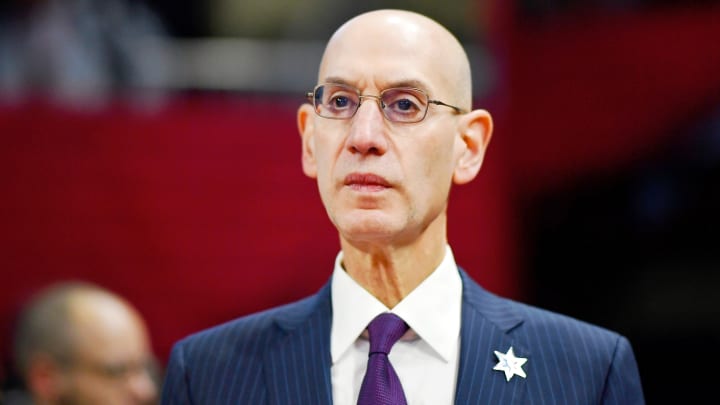U.S. Senator Questions NBA's Relationship With China

WASHINGTON, D.C. — A U.S. senator is again questioning the NBA’s relationship with China, specifically critical of the organization's new deal with state-controlled China Central Television.
In a two-page letter sent to NBA commissioner Adam Silver on Thursday, Sen. Marsha Blackburn (R-Tenn.) wonders why the league would strike a deal with a television company that is at the mercy of Communist China, all while an investigation continues into China’s subversive acts as it relates to the origins of COVID-19. Sports Illustrated obtained a copy of the letter.
China will censor CCTV broadcasts that are seen as a threat to the Chinese Communist Party (CCP), she writes, and she suggests that the NBA’s new CCTV deal is a selfish maneuver that comes in the midst of reports that the country hoarded protective equipment, silenced doctors and lied about the risk of human to human transmission of COVID-19.
“While investigations into the origin of COVID-19 continue in Wuhan, the NBA seems solely focused on mending its relationship with CCTV,” the letter reads.
This weekend’s All-Star Game will commence the full-time return of CCTV airing NBA games after the company banned all league games in 2019-20. In October, the NBA announced news of the return of CCTV, citing continuous goodwill expressed by the league toward China’s government.
“It is safe to assume that ‘goodwill’ included the $1 million in medical supplies the NBA sent to the CCP?” she writes. “China dominates Personal Protective Equipment (PPE) production worldwide, so it is deeply troubling that the NBA would send this aid, especially after witnessing the lack of transparency shown by the CCP throughout the entire pandemic and their continued grave human rights violations.”
The letter cites a New York Times investigation into companies affiliated with the CCP that are using Uyghurs, a predominately Muslim ethnic group, as forced labor to increase production of PPE, while also highlighting the troubling situation in Hong Kong, where China has reneged on commitments to democracy under its treaty with Britain.
The letter poses three questions to Silver with a March 30 deadline for him to answer. Blackburn wants to know (1) the details on the new contract with CCTV and what the NBA must “adhere to” as part of the contractual negotiations, especially as it relates to sensitive topics such as Hong Kong and the Xinjiang region; (2) requests the financial impact of CCTV’s ban on airing NBA games; and (3) asks about the role in the new deal of China’s Chief Executive Officer Michael Ma, whose father is a top executive at CCTV.
“As the All-Star game draws near, it is imperative that Congress receive further details on the NBA’s relationship with China,” she writes.
This is the latest in a string of sometimes blistering communication from Congressional lawmakers toward the NBA over its dealings with the communist country. They grew tense last summer, when Blackburn and Sen. Marco Rubio (R-Fla.) purported that the NBA deceived Congressional members about its involvement in a youth basketball academy based in a controversial region of China.

Ross Dellenger received his Bachelor of Arts in Communication with a concentration in Journalism December 2006. Dellenger, a native of Morgan City, La., currently resides in Washington D.C. He serves as a Senior Writer covering national college football for Sports Illustrated.